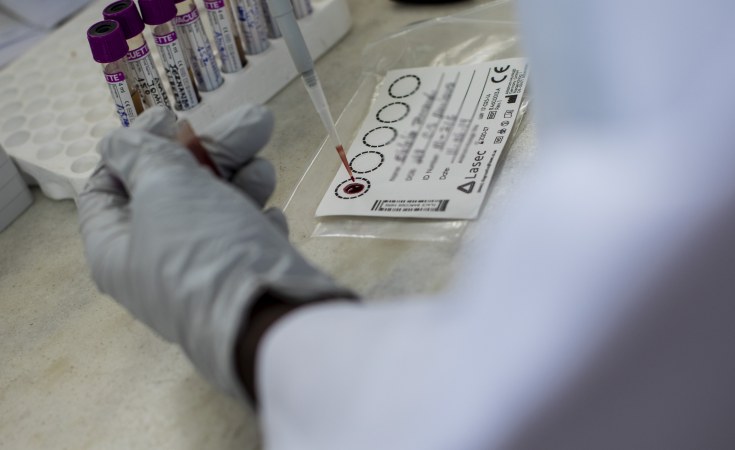Kampala, Uganda — Researchers of the vaccine programme at Uganda Virus Research Institute (UVRI) will start conducting a study among females below 25 years to assess the efficacy of Lenacapavir, an HIV injectable drug.
Participants will get an injection of the drug twice a year compared to those who take pills every day. While speaking to journalists on ahead of World AIDS day, Dr Brenda Oketch, the head of the Uganda vaccine programme, said that 400 girls and women aged between 15 to 25 years living in fishing communities in Uganda will be targeted.
According to the National HIV/AIDS Report, last year, the country registered 54,000 new HIV/Aids infections, of which two-thirds were adolescents. The report indicates that girls bear the highest brunt of new infections. Dr Oketch said that the study named Multisite Adolescent Girls and Women is also being done in South Africa and Zambia to reduce new infections among the most at-risk population.
"As researchers, we just need to keep engaging stakeholders and young women themselves so that a product comes that they really can use. We learned from a previous study we had done those women below 25 had a lot of issues with tablets. They would say that when they would be travelling, tablets would rattle in their bags. So, they want something discreet," he said.
Prejudices and social discrimination are some of the leading causes for those affected to avoid seeking health care or HIV testing, according to Avert. The issues faced by people living with HIV include gender-based violence and a lack of access to education, health services, social protection and information about how to cope with these inequities and injustices.
Most people living with HIV in Uganda are enrolled on HIV treatment. Nelson Musoba, the director General of Uganda AIDS Commission believes that new infections will reduce if the treatment is made easier. "Over 90% of our patients take a single pill daily. We went from no treatment to 20 pills a day to a single pill a day." The injectable treatment is also an antiretroviral one, used through a different method of administration, Musoba said, "It's convenient, it promotes adherence, it will reduce stigma significantly because stigma continues to be an issue."
Dr. Ali Ssetaala, the head of community studies says that the key information needed from the research is about efficacy of Lenacapavir in comparison with tablets, and convincing females in the target age group in fishing communities in Mityana, Masaka and Kalangala to embrace their options once proven that they safe. "We believe that once this drug is shown to be efficacious among these high-risk girls and women, it will be an addition to the already approved injectable PrEP (Cabotegravir taken every two months), Ssetaala adds that Lenacapavir has the potential to reduce the number of visits to the health facility from six times a year to two times.
The World Health Organisation (WHO) last year licensed their use as injectables. Uganda is one of three African countries, along with Kenya, Zimbabwe and South Africa, which got approval from the WHO to carry out the trials. However, Kenya is yet to acquire approvals to start their trials, expected by the end of the year.


